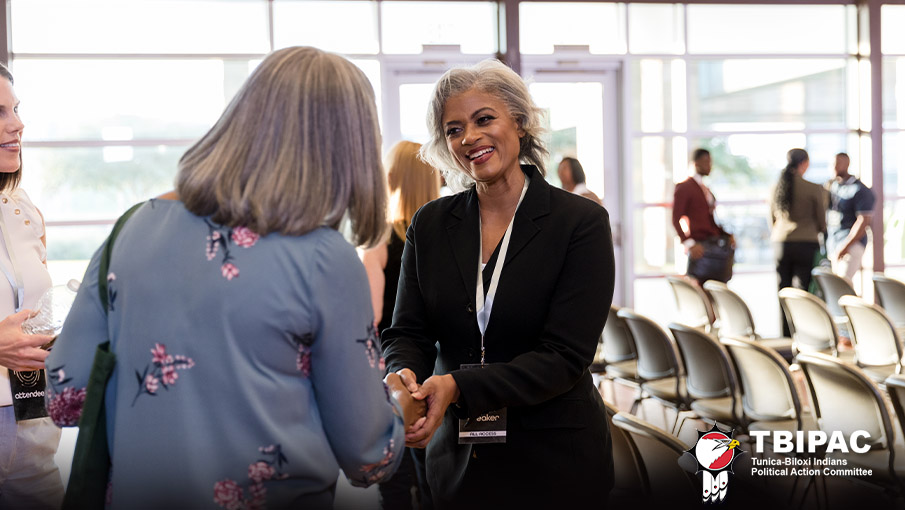To build and maintain political relationships, it is important to identify key political figures and organizations that have similar or aligned interests.
As you identify the key individual political figures best suited for you/your organization to interact with, it is also important to engage with influential political organizations. Those political organizations provide information on the top organization contributors and political action committees. These organizations can have a significant impact on political campaigns and policy decisions. As you make these connections, be sure to remember a few key players to connect with, those players would be the Chief of Staff, Event Coordinators, and Schedulers.
By studying and engaging with these key political figures and organizations, individuals can build and maintain important political relationships that can have a significant impact on their political goals and initiatives.
At this point, you may be wondering, well how do I meet/engage with a political figure once I’ve identified the ones I need to interact with?
You will need to attend political events, conferences, and fundraisers to meet and network with individuals and organizations. Let’s walk through the following the steps mentioned below:
- Research and Identify Relevant Events: Begin by researching and identifying political events, conferences, and fundraisers that are relevant to your objectives and the individuals and organizations you wish to network with. Consider factors such as the reputation of the event, the guest list, and the topics being discussed.
- Select the Most Suitable Events: From the list of identified events, select the ones that align with your goals and offer the greatest networking opportunity. Consider the relevance of the event to your objectives, the potential attendees, and the networking opportunities available.
- Plan and Prepare: Once you have chosen the events you will attend, start planning and preparing for each one. Determine the date, time, and location of the event, and make any necessary travel arrangements. Ensure you have a clear understanding of the event agenda, guest speakers, and topics of discussion to engage in meaningful conversations.
- Dress Professionally: Dress appropriately for each event, ensuring you present yourself professionally. Dress code may vary depending on the event, so research and adhere to any specified requirements or general expectations.
- Introduce Yourself: Upon arrival at the event, introduce yourself to the individuals and organizations you are interested in networking with. Be confident, polite, and succinct in your introduction, highlighting your background and the purpose of your attendance.
- Engage in Conversations: Take the initiative to engage in conversations with attendees, focusing on establishing rapport and demonstrating your interest in their work. Ask open-ended questions, actively listen, and contribute to discussions with insightful comments or ideas related to the event's topics.
- Exchange Contact Information: During conversations, if you find individuals or organizations that you wish to connect with further, exchange contact information. This could include business cards, email addresses, or social media details. Be sure to follow up with them after the event to continue building the relationship.
- Follow-Up: After the event, promptly follow up with the individuals and organizations you connected with. Send a personalized email or message, thanking them for their time and expressing your interest in maintaining contact. This gesture reinforces your commitment to building and maintaining political relationships.
- Maintain Relationships: Continuously nurture the relationships you build by keeping in touch with the individuals and organizations through regular communication. Attend other relevant events where they may be present, support their initiatives, and
Let us not forget that as we identify and make appropriate connections, there is one concept to hold onto…communication is key. Be sure to maintain regular communication to build strong political relationships, it is essential to send updates, share relevant information, and offer support or assistance when needed.
To accomplish this, you can adopt a proactive approach and establish a structured communication plan. Firstly, schedule regular meetings or phone calls with key individuals involved in the political relationships. This will provide an opportunity for you to share updates, discuss relevant information, and offer support or assistance. By having these regular touchpoints, you can ensure consistent and effective communication.
Additionally, you will want to utilize various communication channels to stay connected and maintain regular contact. This includes sending timely emails, newsletters, or bulletins to provide updates on any significant developments or events. By staying proactive in sharing information, you can demonstrate transparency and keep the political stakeholders informed.
Furthermore, you should actively listen to the concerns, needs, and priorities of the individuals involved in the political relationships. By understanding their perspectives, you can offer targeted support or assistance whenever required. This may involve providing resources, connecting them with relevant contacts, or offering guidance based on my expertise and experience.
To enhance the effectiveness of communication, you can tailor the information shared to the specific needs and interests of each individual or group. By personalizing the updates and information, you can demonstrate that you value their involvement and understand their unique circumstances.
In addition, maintain a professional and respectful tone in all forms of communication. This includes being mindful of the language used, ensuring clarity in the messages conveyed, and promptly responding to any inquiries or requests for assistance. Building trust and rapport through respectful communication is crucial for maintaining strong political relationships.
Finally, you will want to monitor and evaluate the effectiveness of the communication strategies implemented. This includes seeking feedback, analyzing the impact of the communication efforts, and making necessary adjustments to improve the engagement and relationship-building process.
By consistently implementing these strategies, you can be confident that you will successfully maintain regular communication, share relevant information, and offer support or assistance to build and maintain strong political relationships.








